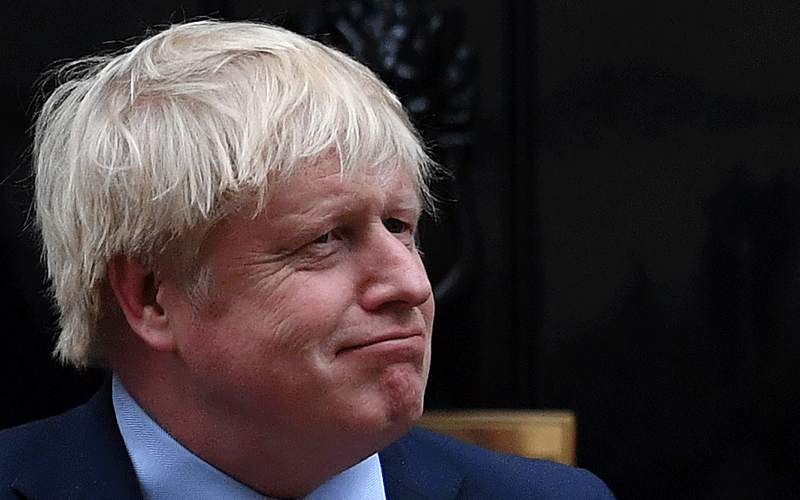Lessons from UK in Boris Johnson leadership
By Levi.Obonyo, January 14, 2022Boris Johnson has only been Prime Minister of the United Kingdom (UK) since 2019, but it is now an open question, whether he will survive to celebrate Christmas in office.
Since his ascension to No10 Downing Street two years ago, the former journalist has rolled from one scandal, blunder, controversy, or U-turn to another.
The garden party scandal unfolding now could bring down his government. It would have been a non-issue in Africa, but Johnson leads the world’s fifth largest economy and higher standards are demanded of him.
His government declared a lockdown following an upsurge in Covid-19 infections but his office went ahead to invite 100 people to a party in the Prime Minister’s official residence, and guests were asked to come with drinks.
About 40 of the invited guests showed up, including Johnson himself. Then some paparazzi captured the Prime Minister enjoying himself in the garden. Initially he insisted it was a work related get together, but Britons were having none of it.
In Parliament, during the Prime Minister’s Question time, Johnson tried to apologise, but Britain was not in the mood of listening to their leader’s apology and so the scandal continues, with results from an inquiry on the matter set to be released next week.
May be if this was the only challenge Johnson has had in his two years as Prime Ministe,r then he would have been given some space. But Johnson has been in crosshairs before.
Leaders can bring their countries down or inspire them to greatness. It was always doubtful that Johnson would fall under the later category.
His record as a correspondent in Brussels for the Daily Telegraph was never great in the first place, in the manner that he reported the proceedings in the European headquarters.
He had his share of goofs as mayor of London, then jumped on the Brexit bandwagon with probably limited conviction and commitment to its ideals.
As fate would have it, it fell to him as leader of the Conservatives, to implement Brexit.
Negotiating with the Europeans in Brussels has not been easy for him, and relations in the Union particularly with Scotland and Ireland remain delicate. But managing these relations would have been challenging for any leader.
His Achilles heel however is on managing the domestic issues. UK, that great kingdom that once ruled the world, under Johnson could not stock enough fuel to run cars in the country. UK had run out of drivers, a problem attributed to the effects of Brexit.
But the man whose hair style looks like he just woke up, has been accused for cozying up to billionaires, refurbishing his apartments lavishly when the country was in lock down, many deaths following Covid-19 infections have been blamed on his management, never mind that he himself only survived the disease after a real scare that kept him in hospital for days.
Even his private life has not been a sterling example, though he has since married his former girlfriend with whom they have a child.
In the period that Uhuru Kenyatta has been President, UK has had three Prime Ministers – David Cameron, Teressa May and now Boris Johnson.
Leadership is important for a country’s match to greatness and a country can hardly grow in the middle of leadership instability.
UK offers lessons on leadership to countries that seek to improve on the welfare of their people. Great days of the UK have also coincided with strong leaders who stayed in office long enough to form a vision and implement it.
Britons must be looking to the years of Winston Churchill, Tony Blair, Margaret Thatcher, Clement Attlee and David Lloyd George with a sense of nostalgia. Those were the years and those were the leaders.
It would take a major crisis of national proportion for Johnson to possibly rehabilitate his leadership and have his name on UK Prime Ministers’ Wall of Fame.
For the rest of the world, and particularly Africa, UK offers lessons on how not to experiment with a country that seeks to be great or remain great. Kenyans should be watching UK to draw some lessons. —The writer is dean, School of Communication, Daystar University
